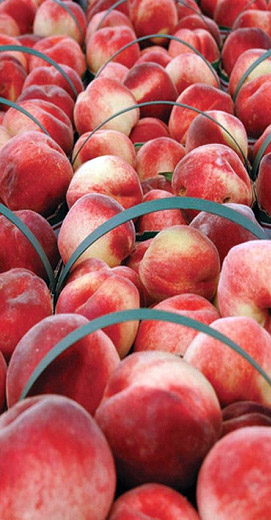Tips on Starting a Farmers’ Market
Starting a farmers’ market can be a daunting task, but rewards for your community are numerous once your market is open. Keep in mind that a farmers’ market is a mix of crucial ingredients and if you are missing one, your recipe will be slightly off. As a FMO member, we can guide you and assist in getting your market up and running. Our member’s only website resource section includes several helpful tools and templates to help facilitate the process.
Here is a list of key planning items to consider when starting a farmers’ market:
Demand
Is there demand for a farmers’ market in your area?
Are there other farmers’ markets in your area? If so, have you been in contact with them to discuss opportunities to build upon and/or collaborate on issues such as scheduling that won’t conflict or compete for customers and vendors. If you’re not sure about customer demand for a new market, ask! A community survey will do the trick.
Consumers
Have you identified who your customers will be and what type of products they are most likely to be interested in?
Is it an ‘after work’ or ‘lunchtime’ crowd, or weekend shoppers? Who would be interested in shopping at your market? This will help you pinpoint what your market will be all about. Knowing your audience will help you focus your goals.
Farmers and vendors
Have you identified and secured farmers and other vendors for your market?
Are there enough interested vendors in your area to provide the range and volume of product for your market? This is the most important consideration, given how challenging it can be to find farmers these days who are available and willing to participate in your market. Volume of vendors is good, but finding the right mix and volume of products to accommodate demand is critical.
Financial support
How are you planning to pay for the start up and promotion of your market?
Who will be the ‘sponsors’ of your market? Have you identified your potential sources of funding? Money is one thing farmers can’t grow. Town council, neighbourhood groups or your local chamber of commerce/ BIA.
Organizational help and volunteers
Have you identified and recruited community groups and/or volunteers to help with the market?
Who will help get the market off the ground? Go team! This is where teamwork is particularly important. Recruit volunteers, community groups and committee members to help with planning and execution.
Purpose
Clearly defining the market’s purpose or mission is perhaps the most important task for market organizers.
Typically, farmers’ markets are created with the primary purpose of serving local growers and consumers, although they have many more benefits.
Products
What range of products will you have at the market?
Will your market be producer-based or include resellers? How will you regulate what is sold at market? Will you restrict products to local food only, allow reselling and/or invite craft vendors?
Location
Have you identified and secured a location to hold your market?
Finding the perfect location is great – but are you allowed to hold a market there? Permits and legal agreements may be necessary.
Market Schedule
Have you selected the day of the week and time for your market?
Considerations for this decision should include availability of farmers/ vendors as well as timing to optimize the traffic / volume of potential shoppers. Finding a balance between when consumers are available and interested in shopping for food and when farmers and vendors are available to sell is key to realizing the most benefit for everyone.
Timeline
Have you got enough time to plan and start up a new farmers’ market?
There is quite a long lead time from when you start planning a new market to the day it opens. We have a sample timeline available to help you map out what needs to happen, and when, during the months leading up to your opening day. You can download it here: Timeline for farmers’ markets.
Communication
How will you disseminate information?
Your method of recruiting vendors and volunteers as well as promoting the market to consumers will influence the market’s success.
Rules and Bylaws
What restrictions are there for selling at your market?
What bylaws will you enforce? What is the cost for selling at the market? Vendors will want to know what they are signing up for and setting out rules from the beginning helps avoid any disputes later in the process.

